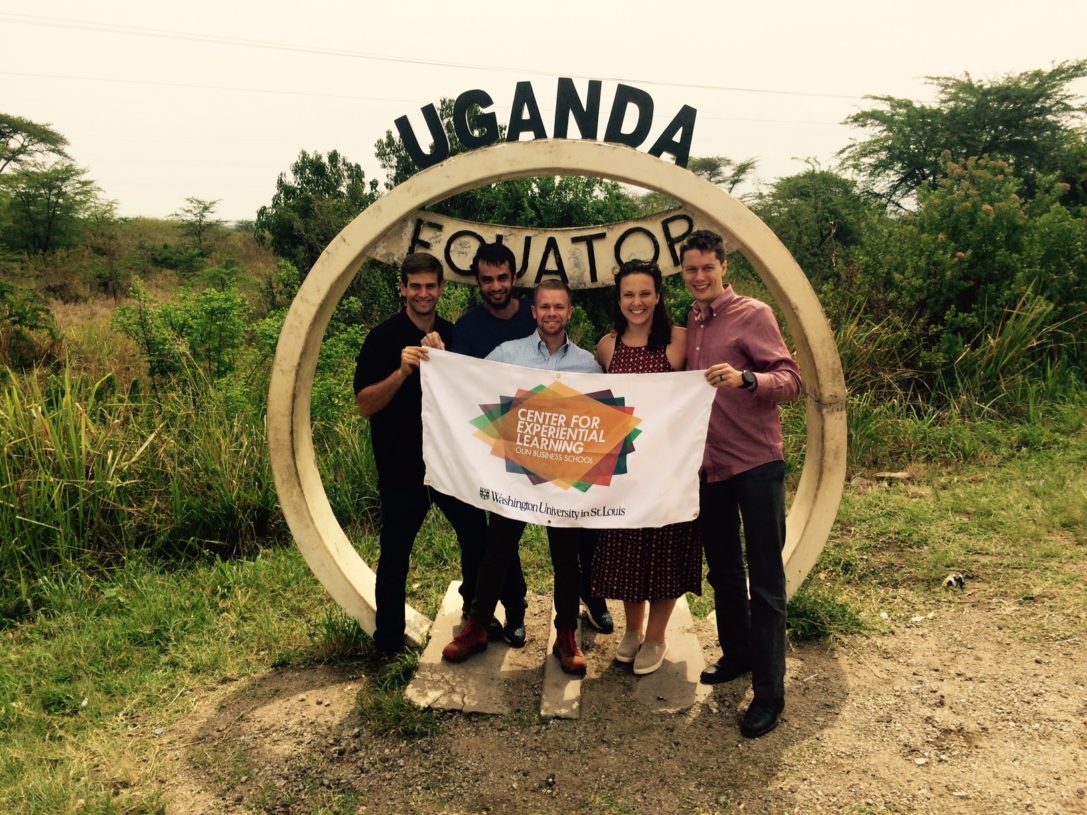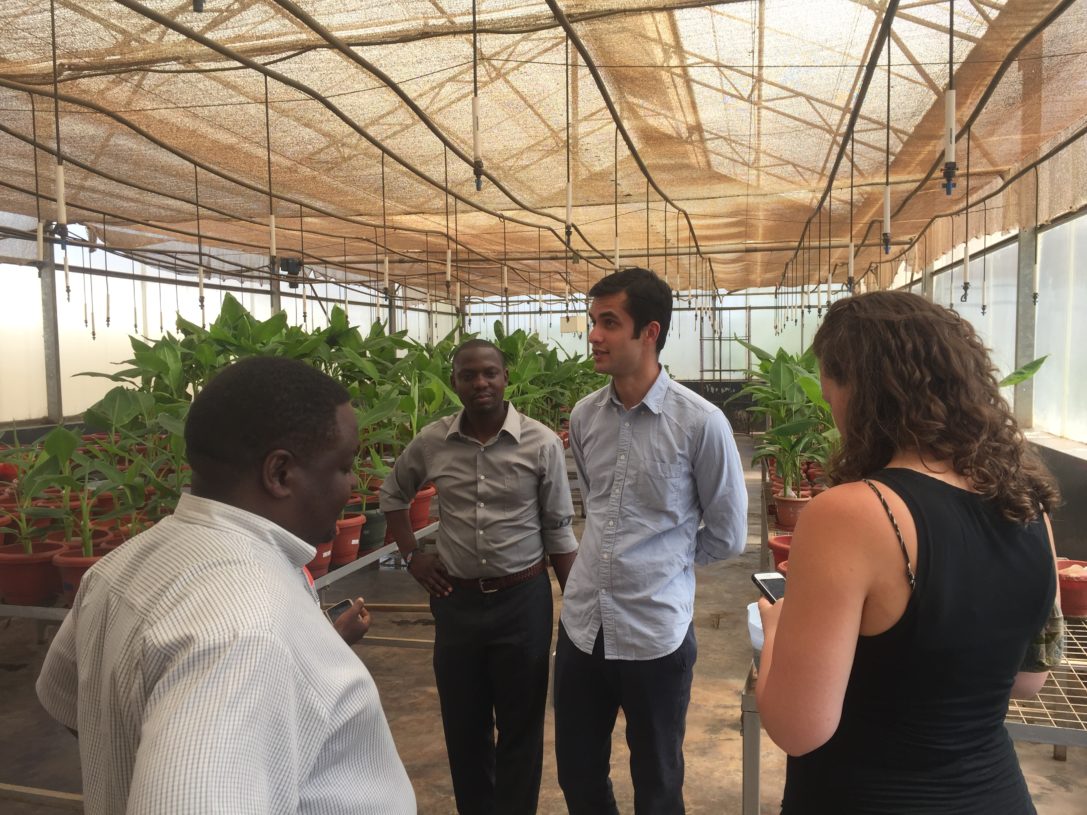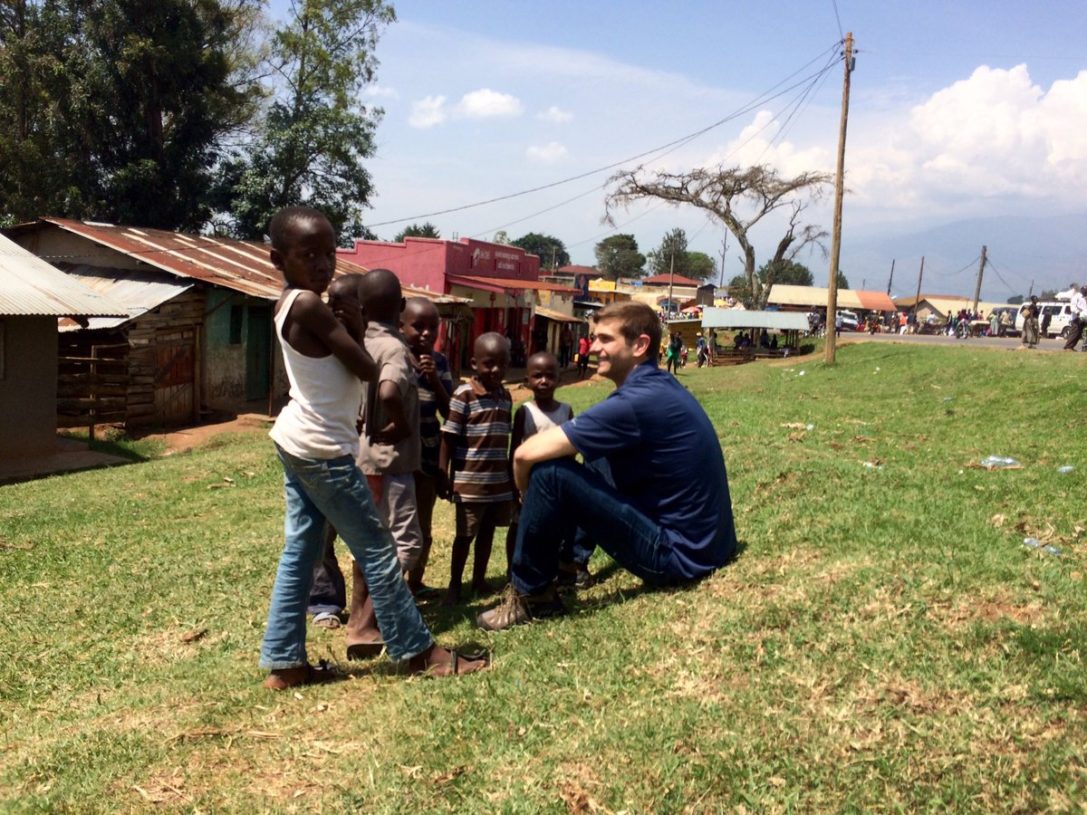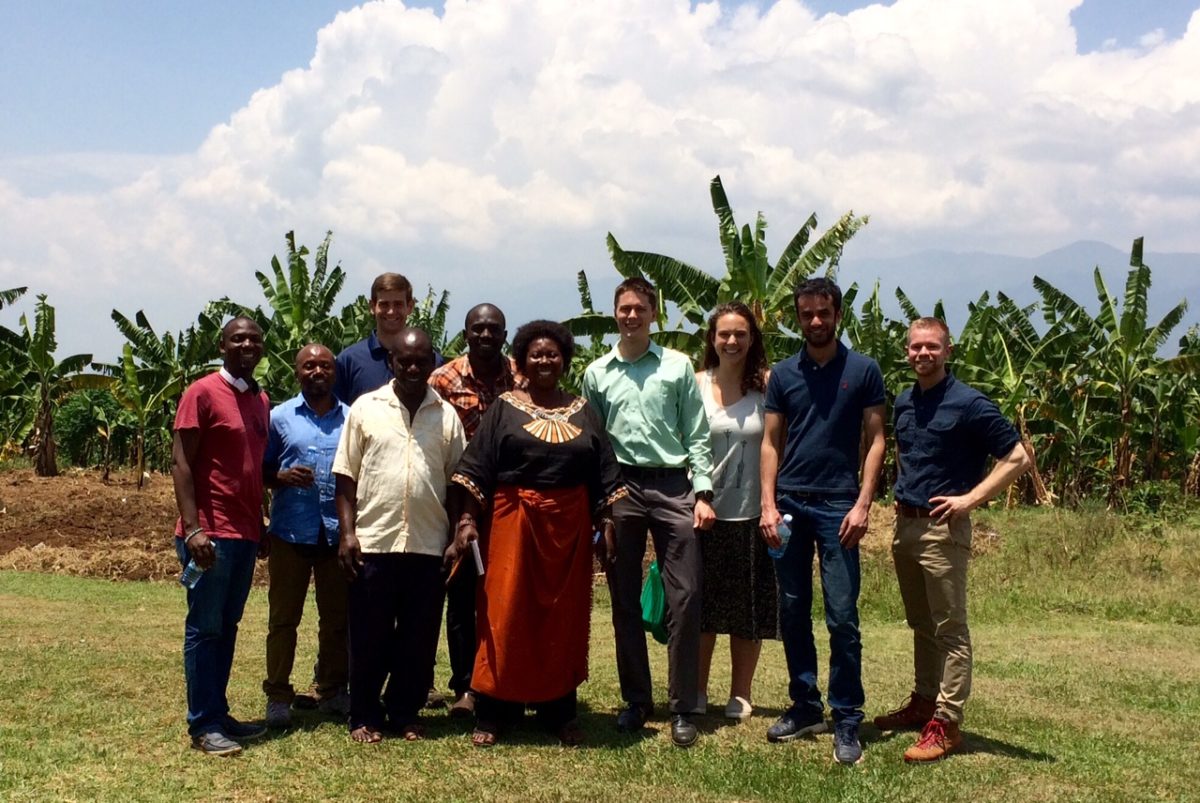Students study banana biz in eastern Uganda
- March 20, 2017
- By Center for Experiential Learning
- 4 minute read

Despite the long days of site visits and nightly debriefings, it never felt like work. For one, absorbing the culture and sights of a new country was a thrill for all of us.
—Cole Donelson, MBA ’18 Team Lead for Mavuno

As we stood under a canopy of banana leaves and listened in awe to a Ugandan entrepreneur who built her own plantation from nothing, I wondered why none of our classes ever included a business case study from Africa. Maybe it’s because much of Africa is what some people call a developing market. Well, this semester my Center for Experiential Learning practicum consulting team has the privilege of working with an organization on the front lines of that developing market. And it’s the best “case” I’ve ever had.
Our client, Mavuno, uses the principles of business to support farmers by organizing them into locally-led groups, educating them with optimal farming techniques, providing them quality supplies and seeds and allowing them access to regional markets. Mavuno is using business as a tool to end extreme poverty in eastern Democratic Republic of Congo (DRC) and stabilize one of the world’s most war-torn regions.

We took off from St. Louis the day after our last midterms, still groggy from our 4am alarms. We arrived in Entebbe, Uganda after 48 hours of traveling, anxious to start soaking in this foreign business landscape in the country that is the world’s second largest producer of bananas (a crop very similar to plantains). Throughout the next week, we traveled all across southern Uganda learning about all pieces of the banana value chain (while also getting a lesson on the expertise and generosity of the Ugandan people):
- Andrew and Robert, a scientist and researcher respectively, illuminated R&D that the National Agriculture Research Organization is doing to create the best-yielding banana varieties and techniques in the lab and the field.
- Gorette, a local farmer, demonstrated how she built a very profitable banana plantation with plenty of resourcefulness and dedication.
- Multiple traders at the market showed how bananas get from the farmer to the hungry consumers in the capital of Kampala.
- Ronald, an engineer, explained how farmers could alternatively sell their bananas to a government plant to be transformed into value-added banana flour.
- Dipesh, a seasoned business man, related why his biscuit (cookie) factory had doubts about the feasibility of producing banana biscuits.
- Matiya, a young entrepreneur, told us how he built his successful snack business that converts raw plantains to value-added plantain chips.
One thing we witnessed throughout our meetings was how the people of central Africa work tirelessly to carve out a living within a complex market (we literally saw people selling beside the road at 2 a.m.). We also saw how they developed an impressive business sense through experimentation and determination. They taught us a lot.
Despite the long days of site visits and nightly debriefings, it never felt like work. For one, absorbing the culture and sights of a new country was a thrill for all of us. We had plenty of fun as we crossed the country for different meetings. We couldn’t help but soak up the gorgeous scenery of forested mountains, tea fields, Serenghetti-like plains and even a sign that marked the equator. In fact, we basically had a DIY safari as we saw baboons, antelope, sitatunga, a rhino, and elephants! And after our enlightening work week we relaxed with our clients at a jazz club featuring amazing live music every Friday. But not even that late night could temper the adrenaline on our last morning in Uganda as we crossed off something that should be on everyone’s bucket list: white water rafting the Nile!
When we recover from both the plantains and the rapids and reconvene in St. Louis, our Center for Experiential Learning consulting team will be armed with a better understanding of Mavuno’s operations and the plantain industry which they intend to enter. We can’t begin to convey all the things we learned from our international business crash course in beautiful Uganda and with our amazing clients, but one lesson stands out.
Whether in the halls of WashU or a farm in rural Uganda, business can serve as a tool to break down some of the world’s toughest problems and lift entire communities.
We are honored to have the opportunity to use our developing MBA skill sets to contribute to the work Mavuno is doing and lift up people of eastern Congo.
Guest blogger: Cole Donelson, MBA ’18 Team Lead for Mavuno.

Contact Us
For assistance in finding faculty experts, please contact Washington University Public Affairs.
Monday–Friday, 8:30 to 5 p.m.
Sara Savat, Senior News Director, Business and Social Sciences
314-935-9615
sara.savat@wustl.edu
Kurt Greenbaum,
Communications Director
314-935-7196
kgreenbaum@wustl.edu